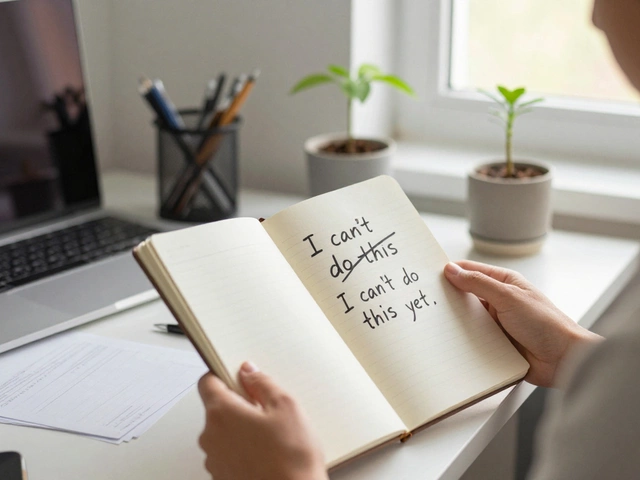Picture this: you’re down the pub with your mates, pints in hand, and someone pipes up, “Does anyone here actually stick to a budget?” There’s a moment of awkward silence, then everyone pretends to check their phones. Talking money feels as taboo as saying you can’t handle your own barbecue—yet ignoring your cash flow is the quickest way to land in a heap of stress. Recent numbers from the Office for National Statistics showed UK men average over £2,000 in credit card debt. Meanwhile, fewer than 20% of British blokes keep track of spending outside the big expenses like rent and bills. Money worries aren’t just for someone else—they’re yours too, whether you admit it or not. Creating a personal budget isn’t about limiting fun. It’s about finally getting your money to do what you want, instead of wondering where it’s gone each month.
Why Bother With a Personal Budget?
Let’s be honest—budgets sound boring, like they belong in an accountant’s office, not in your actual life. But stats say men who pay attention to their personal finances report less anxiety and more freedom to do what they want. According to YouGov polling in 2024, over half of UK men aged 25 to 40 admitted they lost sleep over money last year. The cost of living jumped nearly 7% in 2023, but wages barely kept pace. No wonder you might feel out of control. Having a budget is your secret weapon. It’s not complicated if you keep it simple: know what’s coming in, what’s going out, and plan to make the leftover work for you. When you set basic rules for spending, you don’t have to panic when the boiler packs in or your mate suggests a last-minute weekend away. You’re ready because you know what you can afford, and you’re less likely to get caught in those “buy now, pay later” traps that slap on sneaky interest fees.
Besides, a well-made budget can help you spot sneaky subscriptions you forgot you were still paying—there’s always one. Guys who regularly use budgeting apps or even a boring old spreadsheet save up to 20% more on average, according to a 2023 Barclays study. That’s not just an extra pint: that’s money you could use for travel, gear, or (let’s be real) petrol that’s gone up again. No matter your age or how much you earn, having a budget is a stress-buster. It lets you say yes to the things you love, and no to stuff you don’t need, without guilt.
Money Mistakes Men Make (And How to Dodge Them)
It’s easy to tell yourself you’re ‘good with money’ because you never splurge on flashy trains or expensive trainers. But the truth? Most money slip-ups are subtle. The number one mistake? Not knowing where your cash is really going. When was the last time you checked your bank statement line by line? Men in the UK, especially those under 30, lose around £900 a year on takeaways and impulse snacks, according to a HotUKDeals survey.
Another classic: thinking you can sort it all ‘down the line’. Waiting until you’ve paid off that car loan or landed a better job might just mean more expensive mistakes later. Then there’s the ‘all or nothing’ trap—giving up entirely because you went over budget once. Nobody gets it perfect. If you overspend one week, adjust for it next time and carry on. Something else men often overlook is emergency savings. An FSB report showed only 1 in 5 British men had enough tucked away to cover a £500 emergency. That’s exactly when loans, overdrafts, or credit cards take over. You don’t want to be one of those blokes panicking over a broken phone or an unexpected bill.
Knowing how to dodge these pitfalls starts with tracking what you spend. Try using an app like Money Dashboard or Emma, or jot the numbers down every Sunday night. Automate payments for basics like rent, utilities, and subscriptions, so you don’t get stung by late fees. Then set aside even a small emergency fund—think £10 a week. That’s a couple of coffees less in exchange for peace of mind. And don’t forget to check if you’re double-paying for anything, like that gym you forgot to quit six months ago. Some banks (like Monzo, Starling) flag subscriptions for you, making it dead simple to spot hidden drains on your cash.

The Smart Way to Build Your Own Personal Budget
You don’t need a finance degree or fancy software to build a budget that works. Start with the basics: what you earn each month after tax. Then work out your essential monthly costs: rent, mortgage, bills, council tax, food, travel. Stick those in a list. The difference between your income and your essentials? That’s your flex money for savings, fun, and anything not strictly necessary. Here’s a quick look at how a typical bloke’s monthly numbers might shake out:
| Monthly Income (Net) | £2,250 |
|---|---|
| Rent & Bills | £900 |
| Groceries | £220 |
| Transport | £130 |
| Subscriptions (streaming, gym, phone) | £70 |
| Eating Out/Takeaway | £100 |
| Entertainment | £80 |
| Savings/Investments | £150 |
| Miscellaneous | £100 |
| Left Over | £500 |
Not everyone earns the same, but the principles are universal. Separate what you need from what you want. Use the 50/30/20 rule if you’re new to budgeting: 50% of your take-home pay goes to essentials, 30% to your wants, and 20% to savings—tweak the percentages based on your reality. Automate savings if you can. Round up card purchases to the nearest pound and send the spare change to a savings pot; some banks do this automatically. If you’re sharing costs, work out a fair split with your housemates or partner so resentments don’t bubble up.
There’s no need to get bogged down in the details every day. Check in once a week or month. If you’ve got side hustles, part-time gigs, or commissions, make a rough estimate of your average monthly earnings instead of just ‘hoping for the best’ each time a payday rolls around. If you do end up with a bigger payday, treat yourself—but also consider topping up your emergency fund or chipping away at debt. If you do it regularly, managing a budget takes less than half an hour a month. Not a bad trade for the freedom it buys you.
How a Budget Changes Daily Life and Relationships
Your personal budget isn’t just about your bank balance—it shapes everyday decisions. Couples who talk openly about budgets argue less about money (you can probably guess why). If you have a partner, chat through big costs: holidays, house stuff, or even Christmas spending. Don’t spring surprise spending or go silent and expect it’ll all work itself out. Honest chats save headaches. A 2024 NatWest survey found men who regularly discuss money with their partners felt 30% more confident about finances, and reported less tension at home. Single? It still counts: having a budget means you can say yes to plans that matter to you instead of ducking out or putting everything on a credit card you’ll later regret.
Having set rules for spending helps you resist dumb purchases—those late-night online shopping sprees you talk yourself into with, “It’s on sale!” or “I deserve it.” Making a plan for your money gives you room to explore what you genuinely want. Maybe that’s gym equipment, road trips, or saving up for something major like a new flat deposit or solo travel adventure. Budgeting doesn’t just stop you from overspending—it sets you up for bigger wins. That’s why self-made millionaires still budget, even when they don’t technically have to. They know what works. And if you’re trying to cut out bad habits? Budgeting gives you concrete wins to track, like finally ditching takeaway coffees or slimming down your weekend pints.
Don’t forget: the habits you set now rewire the way you see money. When you spot progress—even tiny steps, like having £100 left at month’s end instead of running short—it motivates you to keep going. Budgeting isn’t about shame, guilt, or going without. It’s about using what you’ve got so future you has better choices, fewer regrets, and more space to actually live.

Practical Budgeting Tips You Can Start Using Today
If budgeting feels like too much effort, start with one simple habit: track your spending for a week. Use your phone notes or snap photos of receipts. You’ll be surprised at how quickly small stuff adds up. Next, pick one thing to cut—maybe midweek takeaways, or cancel an unused streaming service. Redirect that cash into a separate account; banks like Starling or Monzo let you set up pots or spaces for everything from ‘holidays’ to ‘new bike fund’ in minutes.
- Set alerts if you’re close to your spending limit, so you avoid nasty surprises mid-month.
- Review your big bills twice a year—check for cheaper energy providers, phone contracts, and insurance. Loyalty rarely pays in the UK these days.
- Try the ‘envelope method’ with digital banking: create spending pots for groceries, travel, luxuries, and stick to them. If you overspend in one, adjust the next week.
- If you mess up, don’t bin the whole idea. Reset and start again. Everyone overspends sometimes.
- Check if your workplace offers help like discounted gym memberships, Season Ticket Loans, or Employee Assistance Programs. Free money or perks? Don’t say no.
If you want to level up, there are apps and tools everywhere: YNAB (You Need a Budget), Snoop, Plum, or Emma. Many are free or have well-rated trial versions. Some link straight to your bank, so you spot trends instantly. Even basic spreadsheets (Google Sheets, Excel) can do the job if you prefer DIY. Remember, it isn’t about perfection. It’s about knowing where your money actually goes and taking steps so it’s going where you want, not just disappearing every month. Once you’ve claimed back control, you end up buying more of what matters to you and stressing less over bills. Not a bad swap for half an hour and a bit of honesty with yourself.






